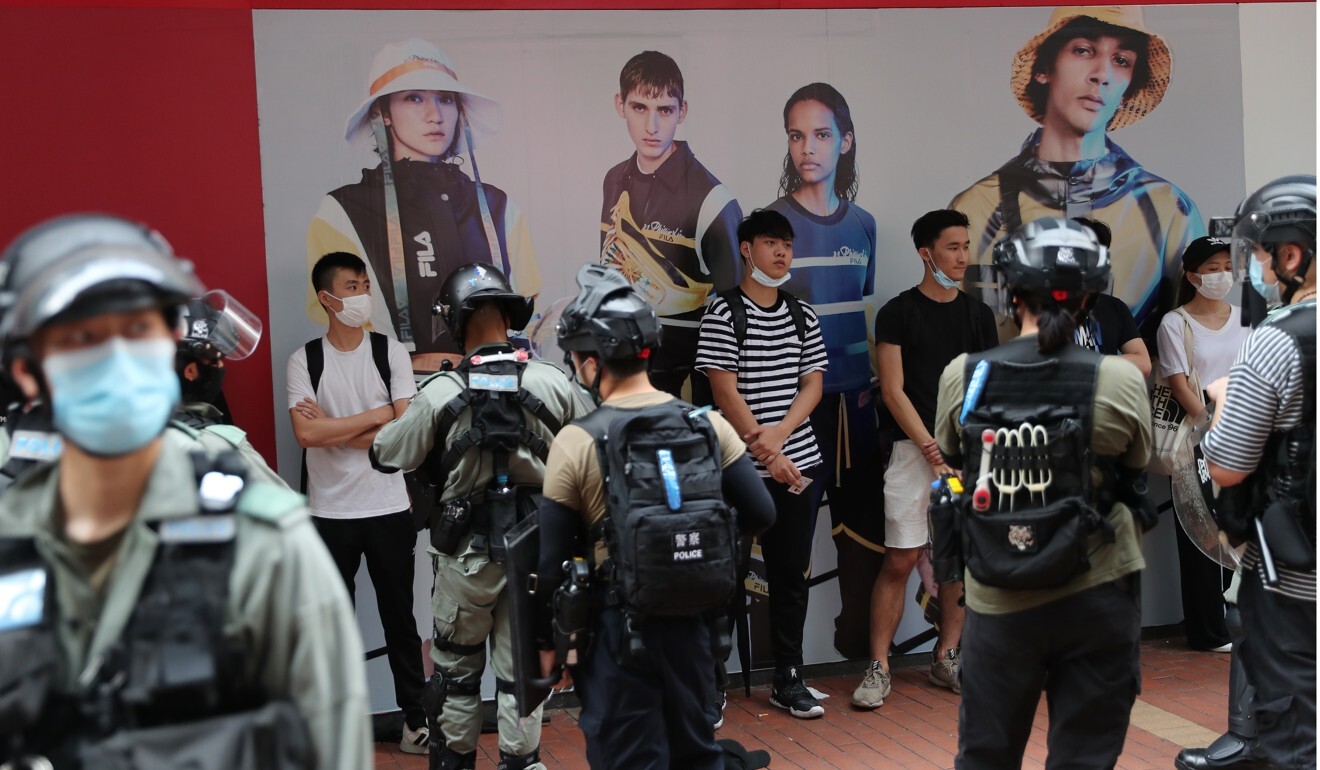
Why is Taiwan’s President Tsai Ing-wen so quiet on US protests, critics ask
- Despite backing demonstrators in Hong Kong, leader has ‘not said anything in support of the American protesters’, political commentator and former opposition lawmaker says
- Academic says Tsai will only draw criticism if she defends ally Donald Trump, so ‘she might as well keep silent’
Jaw Shaw-kong, a political commentator and former member of the Kuomintang (KMT) – Taiwan’s main opposition party – derided Tsai for not expressing an opinion on the matter.
“How come Tsai Ing-wen has said nothing at this time?’ he asked. “If she has raised her voice to support the Hong Kong protesters, how come she has not said anything in support of the American protesters?”
Police and the public in the US clashed for an eighth straight day on Wednesday as protests continued over the death of 46-year-old African-American George Floyd who was killed in police custody last week in Minneapolis.
In several cities, protesters defied curfews to take to the streets, while the deployment of National Guard troops sparked accusations that the authorities were employing excessive force.

“But if she shows support for Trump, that might put her in an embarrassing situation, as many countries have already spoken out against his handling of the protests,” he said.
Either way, Tsai should break her silence and tell the public where she stood on the issue, he said.
Taiwan’s presidential spokesman, Ting Yun-kung, said on Wednesday that the presidential office was monitoring developments in the US and had confidence the disputes would be resolved fairly.
“We believe that unlike with a tyrannical regime, disputes like this will be handled properly through dialogue and cooperation under a democratic system,” he said.
Trump on Monday declared himself the “president of law and order” and described the protests as “acts of domestic terror”. He also ordered the deployment of troops and police officers on the streets of Washington.

Tsai Cheng-yuan, a former deputy secretary general of the mainland-friendly KMT, accused presidents Tsai and Trump of hypocrisy in their assessments of the respective troubles in Hong Kong and the US.
“By describing the protests [in America] as acts of domestic terror and deploying National Guard troops to suppress the protesters, Trump is applying double standards,” he said in a Facebook post on Wednesday.
“In Hong Kong, the protests are a fight for freedom and democracy, but when it comes to the US, they are acts of terror.”
Tsai said that President Tsai had been equally hypocritical, having staunchly defended democracy and human rights in the past, yet saying nothing about the death of George Floyd.
Chinese rappers back George Floyd protests, but not Hong Kong’s
“When it comes to black Americans, she stops short of standing up for them,” he said.
Lin He-ming, deputy secretary general of Taiwan’s ruling Democratic Progressive Party (DPP), said in a Facebook post on Monday that the unrest in the US had begun as a matter of racial discrimination, but it “remains to be seen if external forces are seeking to intensify the clashes”.
Talk show host and KMT supporter Tang Hsiang-lung said in an interview on Wednesday that Tsai’s heavy reliance on the US in countering Beijing had made it difficult for her to criticise Trump.
“The Tsai government has been spicy in its talk about Hong Kong, and equally spicy in dealing with China,” he said. “But when it comes to America, it turns chicken.”
Since Tsai, of the independence-leaning DPP, was elected president in 2016, relations between Taipei and Beijing have soured. At the same time, Tsai – who won a second term as leader in January – has sought to bolster the island’s links with the US, and is relying on support from Washington as it fights to gain observer status at the World Health Assembly.
Asian-Americans join in support of protests after George Floyd’s death
Wang Kung-yi, a professor of political science at Chinese Culture University in Taipei, said it was not surprising that Tsai had been tight-lipped on the situation in the United States.
“Given Taiwan’s close ties with Washington, it is inconvenient for Tsai to comment on the US unrest or how Trump has handled the protests,” he said.
“And as she is likely to draw criticism if she says something good about Trump – she might as well keep silent.”
But Tsai denouncing police brutality and the suppression of human rights in Hong Kong was a different matter, Wang said.
“Her government has adopted a policy of countering China, so it’s not surprising for her to speak out against what has happened in Hong Kong, which is under the control of Beijing.”

